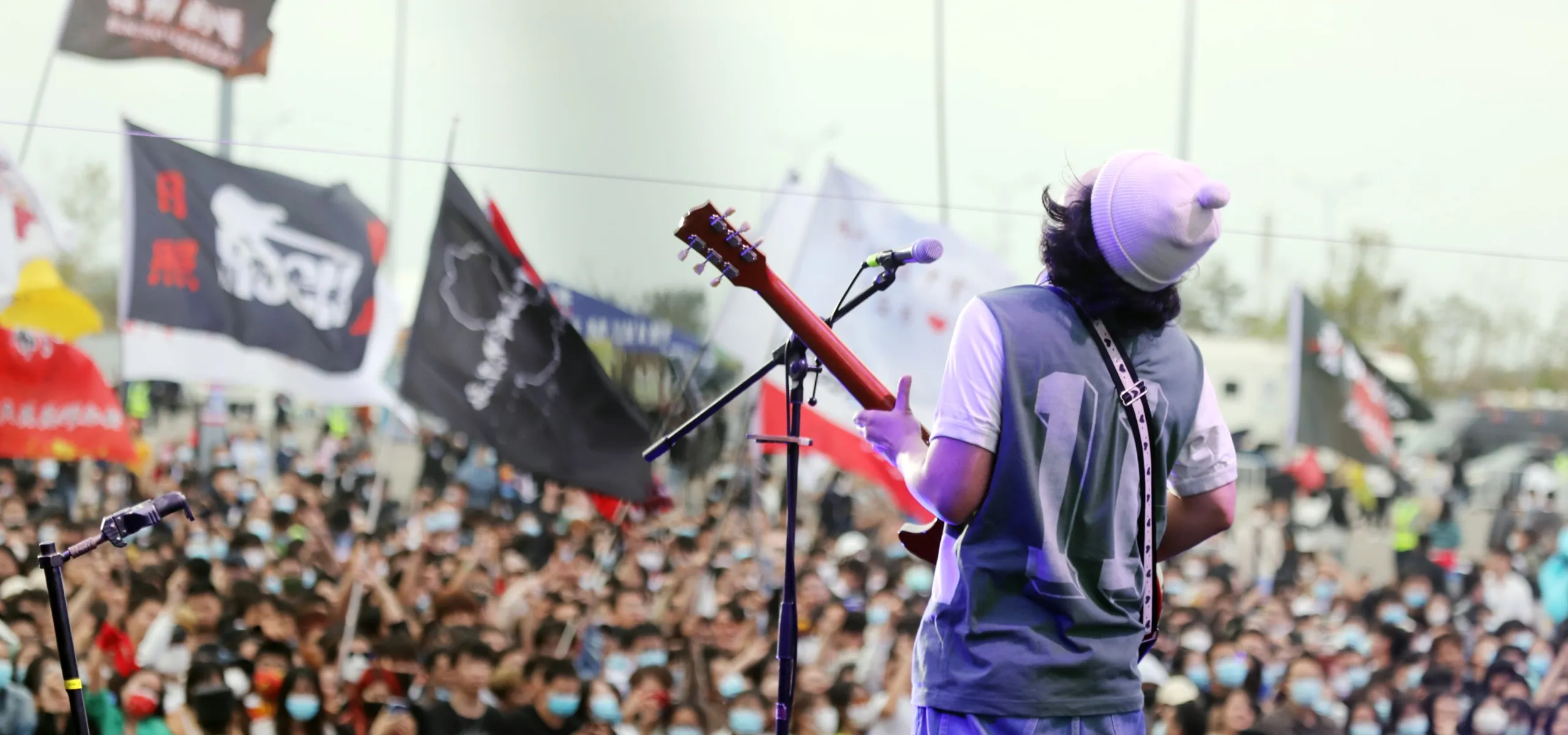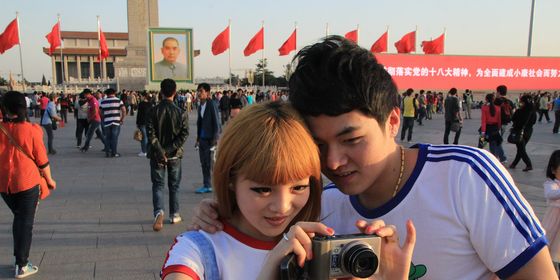Music festivals in China are back after the pandemic hiatus. But inflated prices, poor site management, and a lack of diverse lineups leaves attendees disappointed
After years of pandemic-related cancelations, China’s music festivals are finally back—and demand is soaring. “In just a few seconds, all the tickets were gone,” says Liu Shanshan, describing the scramble online for tickets to Midou Music Festival held in Nanjing, Jiangsu province, during this year’s Labor Day holiday in May.
The price, at 450 yuan a day, is higher than usual. But for those like Liu, who have been unable to attend festivals for three years, it was worth forking out for. The 26-year-old journalist, who wishes to go by a pseudonym, had been attending at least one music festival a year since 2015, until the outbreak of Covid-19 put a stop to most events, including live music performances. This year, with virus prevention measures ended, she has made up for lost time by attending Midou and a dozen other live music performances.
“I felt like I was depressed during the pandemic days,” she tells TWOC, explaining how watching videos of previous live music performances on her phone was a poor substitute for the real thing. “It had been a long time since I enjoyed any live performances, so I want to recapture that feeling [of being there in person] now.”
Festivals making up for lost time
After being hit hard by the pandemic, the music festival industry has bounced back since early 2023. According to state-media outlet China News, 290 days of performances at 106 music festivals took place in February and March alone, with over nine times the number of tickets sold compared to the same period in 2019. Big, well-known festivals have returned, including Strawberry Music Festival, which drew 50,000 attendees over two days in Changsha, Hunan province; and the Midi Music Festival, which attracted over 100,000 visitors in three days in Yantai, Shandong province.
Now, smaller towns and counties are also jumping on the music festival bandwagon in the hope of boosting the local economy post-pandemic. During the five-day Labor Day holiday, more than 40 music festivals were scheduled in 19 provinces, compared with approximately 10 the same period in 2019, according to Xiaolujiao, an online database of live music in China.
But the explosion of events post-pandemic has also led to a torrent of complaints about surging prices, poor on-site management (particularly at festivals in smaller towns), and cliché lineups.













